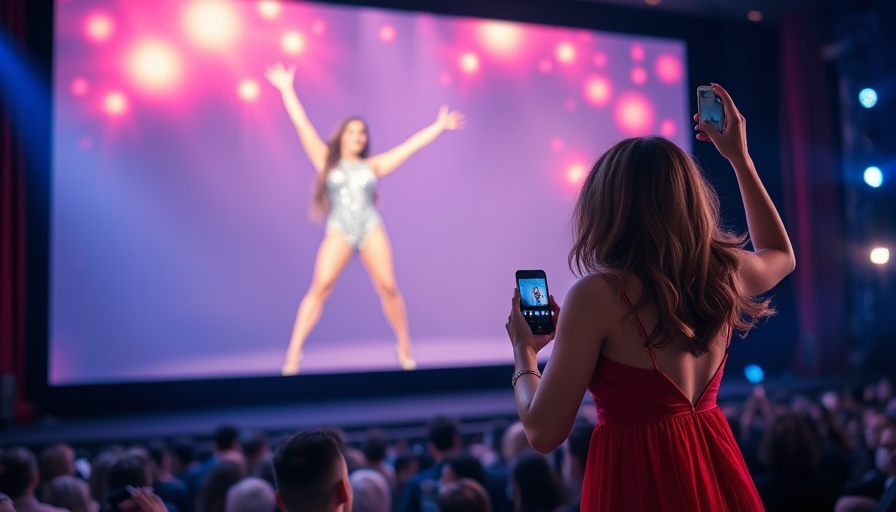
Unpacking the Backlash: Why Swifties Are Saying 'No' to AI
Taylor Swift, a pop culture icon known for her deep connection with fans, finds herself at the center of a fiery debate surrounding the use of artificial intelligence (AI) in promotional materials. Following the release of her album, The Life of a Showgirl, a promotional scavenger hunt led to a hashtag—#SwiftiesAgainstAI—trending across social media platforms. Fans are voicing their disappointment over the perceived use of generative AI in videos that showcased Swift's new music, igniting critical discussions about authenticity in art.
What Sparked the Outcry?
The promotional campaign featured an engaging scavenger hunt where QR codes were hidden behind striking orange doors in major cities like London, Los Angeles, and Chicago. However, fans quickly zeroed in on inconsistencies in the videos associated with those doors—some claimed they could identify telltale signs that the clips had been AI-generated. Observations included unnatural shadows, jarring transitions, and other visual anomalies that raised eyebrows. Graphic designer Marcela Lobo noted that the visual quality was “wonky,” leading to suspicions about the true origin of the footage.
The AI Debate: What Does It Mean for Art and Commerce?
The current uproar isn't solely about Swift; it reflects a broader concern artists face regarding AI's rapidly growing influence in creative fields. A Pew Research survey indicated that nearly 50% of respondents would find a painting less valuable if they discovered it was created by AI. This sentiment is echoed by vocal fans who fear that utilizing AI could undermine the artistic intent and craftsmanship that Swift has long championed. For a figure like Swift, who has been an adamant advocate for artists' rights, the potential use of AI raises perplexing questions about her alignment with these values.
Historical Context: The Narrative of AI in Art
The use of AI-generated media has been contentious in creative circles for years, with significant attention paid to its implications during Hollywood's labor disputes last year. Advocates for artistic ownership emphasize that AI often relies on pre-existing artistic works without credit, raising ethical questions about ownership and originality. Swift's previous remarks against AI, citing concerns about misinformation and lack of transparency, make the current situation particularly ironic.
Future Insights: What Lies Ahead?
The backlash may prompt a deeper evaluation of how AI fits into the world of music and visual arts. As debates mount, artists, business owners, and industry leaders must confront the implications of AI. Swift's case serves as a litmus test for how the industry navigates these turbulent waters. Will artists strengthen their resolve to maintain the authenticity of their work, or will they succumb to the allure of efficiency offered by AI in the fast-paced digital landscape?
Actionable Insights for Business Owners: Navigating AI's Terrain
For entrepreneurs and small business owners pondering the use of AI in their operations, Swift's situation acts as a cautionary tale. While there are undeniable benefits to AI— such as automation of tasks and personalization of customer interactions—businesses must delicately balance innovation with authenticity. It's essential to foster a culture that values the creative aspects of a brand, ensuring that technology enhances rather than replaces the human touch.
Critical Reflections: What Swifties Want
While the storm over AI continues to rage, many fans hope to see a direct response from Swift. Ellie Schnitt, a prominent influencer among Swift's fanbase, articulated their desire for accountability, emphasizing that Swift's artistic integrity should lead her to clarify her stance on AI within her creative process. The fans' call to action resonates within the broader context where artists must navigate technological advancements while maintaining their core values.
The intersection of art and AI has opened doors to endless opportunities, but it also necessitates vigilant scrutiny to uphold the essence of creativity. As Swift's saga unfolds, it serves as a critical moment for dialogue about the role AI will play in our cultural future.
 Add Row
Add Row  Add
Add 




Write A Comment